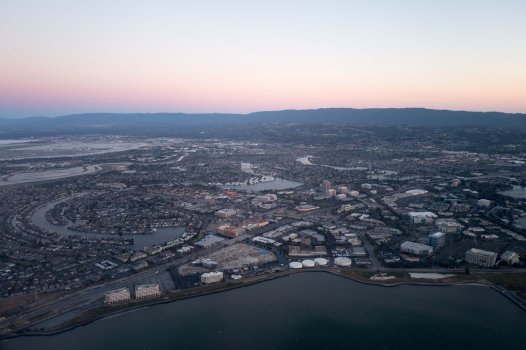Artificial intelligence promises to be one of the most important, and potentially most disruptive, technologies of our time.
It has already permeated the fabric of our daily lives, shaping everything from the recommendations that turn up when we search the internet, to drive-assist features in cars like the Tesla. In the future, AI may help doctors make better diagnoses and power entirely self-driving vehicles. In this regard, AI is a truly epoch-making advance, considered by experts to be a “general-purpose technology” like the wheel, the steam engine, electricity and the modern factory system.
These sorts of technologies are the underlying forces that power entirely new industries and recreate existing ones. They also underpin the rise of whole new economic systems. AI is predicted to have substantial economic impacts, adding as much as $15.7 trillion to global economic output by 2030. It’s no surprise, then, that the U.S. government placed AI high up on its list of key critical technologies for innovation, economic competitiveness and national security.
But AI threatens to reinforce or magnify the same geographically uneven patterns of previous high-technology industries that are concentrated in leading tech hubs and superstar cities across the U.S. That’s the main take-away from a new Brookings Metro study that digs into the geography of AI at the metro level. The study, by Mark Muro and Sifan Liu, charts AI’s impacts across two key dimensions: university research, including academic publications, patents and federal grants and contracts; and commercialization factors like job postings and workforce skills.
Continue reading: https://www.bloomberg.com/news/articles/2021-09-08/san-francisco-bay-area-dominates-race-for-ai?srnd=citylab
It has already permeated the fabric of our daily lives, shaping everything from the recommendations that turn up when we search the internet, to drive-assist features in cars like the Tesla. In the future, AI may help doctors make better diagnoses and power entirely self-driving vehicles. In this regard, AI is a truly epoch-making advance, considered by experts to be a “general-purpose technology” like the wheel, the steam engine, electricity and the modern factory system.
These sorts of technologies are the underlying forces that power entirely new industries and recreate existing ones. They also underpin the rise of whole new economic systems. AI is predicted to have substantial economic impacts, adding as much as $15.7 trillion to global economic output by 2030. It’s no surprise, then, that the U.S. government placed AI high up on its list of key critical technologies for innovation, economic competitiveness and national security.
But AI threatens to reinforce or magnify the same geographically uneven patterns of previous high-technology industries that are concentrated in leading tech hubs and superstar cities across the U.S. That’s the main take-away from a new Brookings Metro study that digs into the geography of AI at the metro level. The study, by Mark Muro and Sifan Liu, charts AI’s impacts across two key dimensions: university research, including academic publications, patents and federal grants and contracts; and commercialization factors like job postings and workforce skills.
Continue reading: https://www.bloomberg.com/news/articles/2021-09-08/san-francisco-bay-area-dominates-race-for-ai?srnd=citylab

